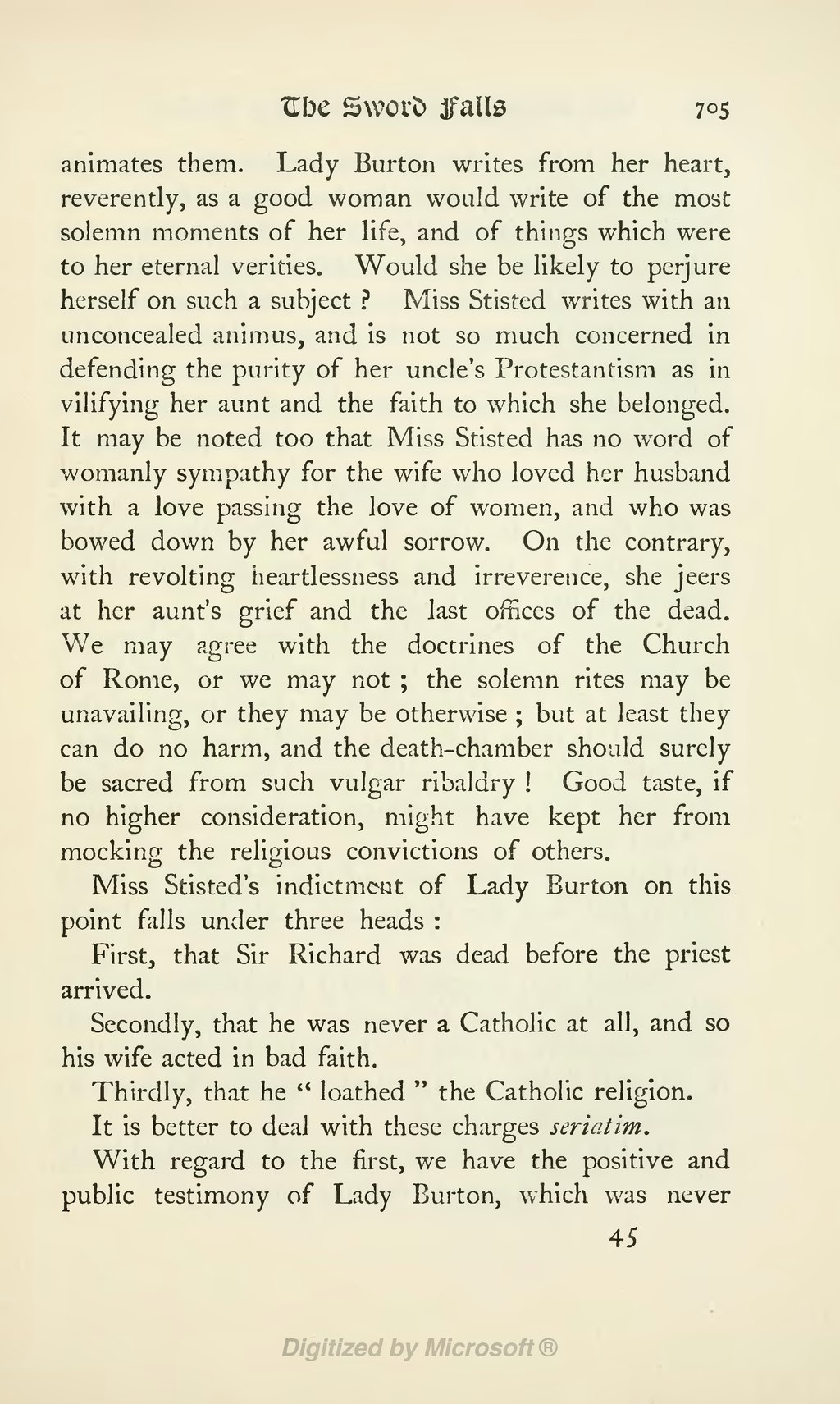animates them. Lady Burton writes from her heart, reverently, as a good woman would write of the most solemn moments of her life, and of things which were to her eternal verities. Would she be likely to perjure herself on such a subject? Miss Stisted writes with an unconcealed animus, and is not so much concerned in defending the purity of her uncle's Protestantism as in vilifying her aunt and the faith to which she belonged. It may be noted too that Miss Stisted has no word of womanly sympathy for the wife who loved her husband with a love passing the love of women, and who was bowed down by her awful sorrow. On the contrary, with revolting heartlessness and irreverence, she jeers at her aunt's grief and the last offices of the dead. We may agree with the doctrines of the Church of Rome, or we may not; the solemn rites may be unavailing, or they may be otherwise; but at least they can do no harm, and the death-chamber should surely be sacred from such vulgar ribaldry! Good taste, if no higher consideration, might have kept her from mocking the religious convictions of others.
Miss Stisted's indictment of Lady Burton on this point falls under three heads:
First, that Sir Richard was dead before the priest arrived.
Secondly, that he was never a Catholic at all, and so his wife acted in bad faith.
Thirdly, that he "loathed" the Catholic religion.
It is better to deal with these charges seriatim.
With regard to the first, we have the positive and public testimony of Lady Burton, which was never
